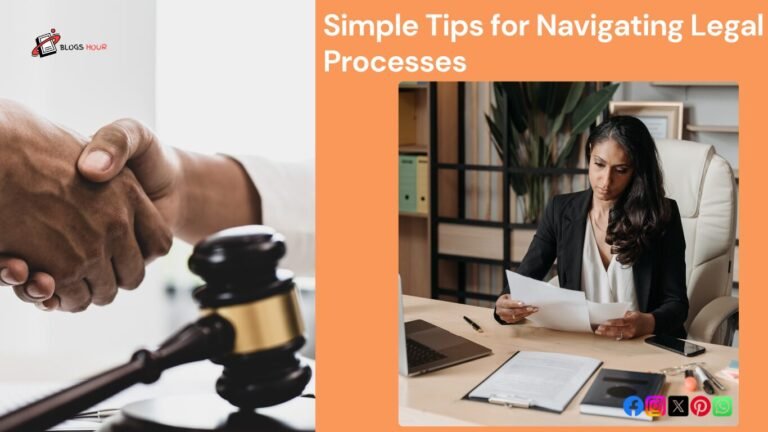Key Takeaways:
- Family lawyers are a must have during divorce and custody battles.
- They cut through the legalese to get fair results and protect their clients.
- Emotional support and mediation are additional services offered by experienced lawyers.
- Staying up to date with changing laws, family lawyers bring current legal advice.
- Finding the right lawyer makes the divorce process so much easier.
What is a Family Lawyer
Family lawyers are our broker during the divorce and custody wrangle. Their job goes beyond legal representation; they deliver strategic advice, emotional support and a map to navigate the family transition. With years of training and hands on experience these lawyers craft solutions that fit each family. This bespoke approach affirms that clients are not simply a case number, but receiving focused attention relevant to their unique circumstances.
Family attorneys work on many family law issues, including divorce proceedings, custody arrangements, and complex matters such as adoption and guardianship. Family attorneys are back with a breadth of knowledge of family law in order to help ease the associated burden with the family conflict, so their clients have the best information to make smart choices about their futures and their children’s futures. Family attorneys often create clarity in murky circumstances, interceding before minor family matters escalate into larger, more complex situations.
Managing Divorce Proceedings with Expertise
Divorce, as your attorney will tell you, is more than ending a marriage contract; for most people, divorce is significant life transition that often has implications on emotional and mental wellness. Family attorneys use their intimate understanding of legal systems to help clients navigate the maze of challenges that arise in the course of divorce. Family attorneys offer a steady touch point for negotiating settlements related to division of property, and alimony. They are organized to ensure all details are handled in a professional and reasonable manner.
The process will involve mediation, with attorneys used as third-party neutral facilitators to help co-parents find reasonable solutions to parenting plans and issues related to their children. Your attorney’s presence in these meetings and negotiation, even if the parents or family members might feel emotive, keep discussions centered on the parameters of a fair settlement. They also provide a safety net against family disagreements growing contentious and diverted from the purpose of the meeting. Family attorneys also serve valuable roles in resolving financial disputes and practical logistics as it relates to divorce. Attorneys advocate for support mechanisms and help resolve issues parents share, such as support or other combined obligations.
Guidance on Child Custody Arrangements
Custody disputes are quite personal, and they can obviously affect family dynamics in the future. Family attorneys are advocates for the child’s best interest and work diligently toward assuring the children are in the best possible home or environment. Family attorneys model the form of custody or visitation they think to be appropriate in relation to how it helps assist with the child’s or children’s overall development. In addition to custody decisions, family attorneys have thoughts on establishing a co-parenting plan that allows for on-going communication and cooperation between parents. As The New York Times notes, post-divorce parenting is intentionally challenging and it requires effort and an understanding of the child’s best interests.
In addition to analysis of legal issues, these attorneys will understand the psychological impacts of custody disagreements, and they will advocate for custodial (legal) custody to help maintain emotional stability for children. It’s a powerful holistic approach to be sure everyone impacted is able to express a voice in crafting the child custody arrangements that result in commitments to promote the child’s welfare. The family attorney does not lessen the emotional burden on the children involved, with an eye towards court prompted consideration, and relationship ruptures. Instead, family attorneys commit their efforts to consider custody arrangements that serve to minimize the potential impact of transitional upheaval on those family systems.
Legal Insights on Property Distribution
Property ownership obtained after marriage regularly results in heated conflicts between divorcing couples. Paralleling their function as negotiators family attorneys understand all legal restrictions for marital assets during property distribution. Clients achieve equitable property treatment via their attorneys’ legal understanding because the settlements properly acknowledge their contributions. They perform detailed evaluation processes to put forward equitable division proposals which take care of future financial health while considering the special features of marriage property assets. The resource Justia gives accessible information about property division complexities which enables people to understand legal frameworks better.

A large number of divorce cases require asset valuation assessments which cover residential properties and mutual investment assets among others. The division process depends on expert attorneys who use their expertise to finalize fair and clear solutions for contentious issues. Legal agreements between splitting couples focus on establishing financial stability which should become effective after divorce. The distribution process takes into account both the duration of the marriage and property contribution and individual financial standing of spouses to create fair results.
The Importance of Legal Documentation
A fundamental element of divorce and custody processes depends on creating legal documents and performing such documents for submission to the court system. Family attorneys handle preparation of paperwork with absolute care to meet each legal requirement thus creating robust enforceable agreements. When documentation exists properly it acts as protection against future disputes because it secures clients’ long-term interests. These documents serve as protective measures that make both parties stick to their decided agreements.
When documents are authorized under legal framework both parties receive protection through this process and gain trust in the agreement. The precise language used in legal documents protects parties from anticipated future disputes regarding obligations of child custody and asset distribution. Due to their careful documentation procedure such agreements gain legal standing for future evaluation thus providing security for what lies ahead.
Providing Emotional Support and Mediation
Family attorneys play an additional role by acting as emotional support for their clients. Family attorneys support clients through talks and court stages where they maintain strong bonds to create a positive environment that drives toward mutual settlement. The mediation skills of these professionals continuously lead discussions toward favorable outcomes which advance process efficiency as they simultaneously decrease stress levels for everyone. Legal professionals work to build a spirit of teamwork which prevents hostility from forming while they focus on finding solutions.
The importance of mediation exceeds any other aspect. Continuous dialogue between parties emerges as a side effect of mediation because it replaces traditional courtroom conflicts. This method delivers both cost and time savings together with protecting family members from emotional breakdowns that result from lengthy court proceedings. Through mediation family members find power to reach agreements which enables them to preserve their dignity and continue with respect.
Staying Informed on Legal Changes
The principles of family law change continuously because they adapt to social transformations together with changes in legislation. Family attorneys allocate time to stay updated through education so their advice follows current legal regulations. Client end results improve when attorneys show devotion to delivering recent legal advice with customized strategies that apply to individual circumstances. Attorneys who maintain updated knowledge about these changes will provide proactive instead of reactive solutions by anticipating upcoming legal developments.
The ability to follow new laws alongside legal interpretations serves both to minimize possible legal dangers and create superior results. Donor diligence for keeping knowledge current extends its benefits from basic cases into more challenging situations. The guide prepared by LegalZoom provides in-depth information about how family attorneys have evolved in their profession. Through continuous learning attorneys position themselves as leaders in legal practice which allows them to offer improved support to clients.
Choosing the Right Family Attorney
Trusting a lawyer who practices family law sets the stage for major consequences in divorce and child custody legal cases. Family law situations create intense emotional situations because attorneys must handle intricate legal processes alongside caring support for their clients. The selection process for prospective clients should focus on finding experienced professionals with strong knowledge of family law statutes alongside emotional intelligence for handling the psychological burden clients must face.
Quality outcomes in divorce and related cases depend heavily on attorney expertise regarding divorces and child custody responsibilities plus spousal maintenance and asset distribution. An attorney requires more than legal expertise to succeed since the capabilities of thoughtful listening and communication play an equally essential role. Family law clients need to find lawyers who excel in family law practice combined with superior interpersonal skills when handling sensitive issues.
The decision to pick professional representation in law requires a practitioner who brings legal ability with emotional understanding to the process. A trustworthy relationship based on listening should exist between attorneys and their clients to create an environment where clients experience strong comprehension and competent representation. Lawyers who possess careful legal skills help their clients overcome stress levels through detailed instructions along with rational targets and special planning systems for each case.
Hiring an appropriate family law attorney purchases legal success and mental resilience for clients. A knowledgeable and compassionate attorney enables clients to progress forward with confidence because he protects their rights along with their family needs and future financial stability.




